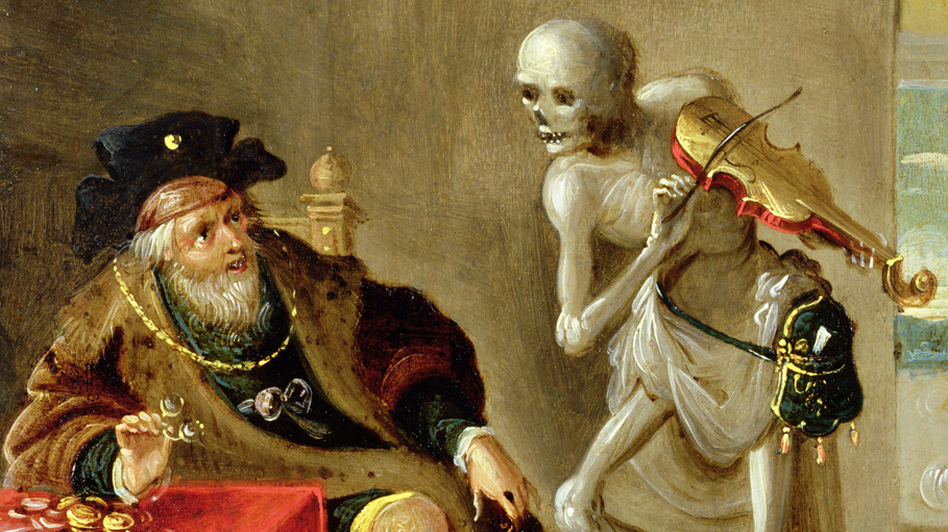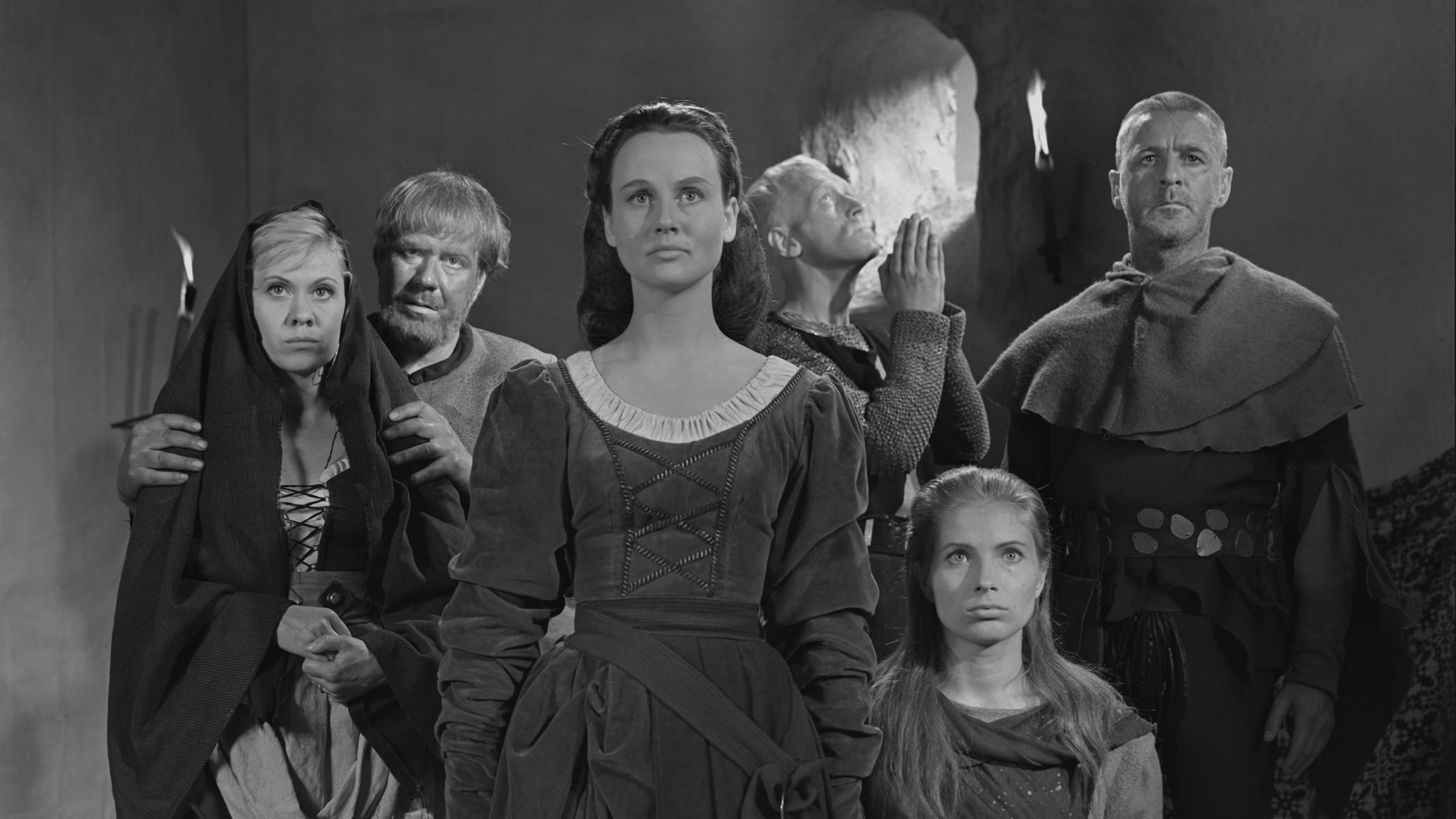The Seventh Seal and the Sweet Facade of Life

The Seventh Seal, directed and written by Swedish filmmaker Ingmar Bergman is an example of the existential philosophy put upon the screen. The gist of the movie is about a knight, Antonius, who challenges Death himself to a chess match for his life. He and his squire Jöns begin the movie lying on a rocky shore, washed up after an unspecified crusade. Death takes his challenge, more for his own fun than anything else; he's a masterful chess player after all.
Antonius begins the movie having lost his faith in god. One assumes he died in a shipwreck of some sort on his way back from a failed crusade. He returns to his lands ravaged by plague, and as he journeys comes to see the monstrosity of man in the procession of Flagellants and the burning of a witch. Here he begins his journey as a nihilist, with all the he built himself upon being unconvincing. Throughout the movie, he tells both himself and death that he is not afraid of the end, but is simply curious to see how he will end up.
The genius of this movie is how it deals with both life and death. It does not dwell too heavily on the miserable face of death; it also shows us the wonders of ordinary life. Antonius is forced to reckon with his impending loss in the chess game, which only becomes more obvious as time moves on. He also must watch the death of the witch who was killed for causing the plague. He directly asks her if he can speak to the devil, the devil which she can see but he cannot. Before she burns, he gives her herbs to help ease her passing by fire.
Antonius loses his cool as the movie goes on, but this is not just because of his game with death. In fact, by the end he gives his own life to save that of a young innocent family of actors he meets along the way. His meeting of them is where Antonius' Nihilism transforms into something else entirely; through traveling with them, he begins to see the joys of life once more. He eats strawberries with them and plays with their young child, he faces the witch and plague by their side. From his Nihilism grows a love of the ordinary day, the happiness not acquired until one is forced to put it into perspective against some other great conundrum; in this case, his death.
Antonius dies for them. Death knows their name and asks about them, and this is perhaps the first time we see him show fear. The next time they play chess, there is another observer who finally sees death; Jof, the father in the small family of travelers. Jof has another interesting scene early in which he sees the virgin Mary playing with the baby Jesus. Here Jof sees death and knows that it means his time has come. He takes his family and escapes while Antonius is in the game. A knowing Antonius purposefully knocks over his piece and keeps Death occupied so that they may escape. He had one goal earlier in the film that he relates to death who is disguised as a priest. He wanted to perform one meaningful deed to make life worthwhile. Antonius the Nihilist gives his pointless life up for theirs.
He dies just a scene later, along with his wife who he has finally reconnected with after years at war, Jöns, and the rest of the party he has traveled with sans Jöns family. The last shot of the film depicts them all doing the Danse Macabre (add link there) up a hill, led by Death himself.
I believe Antonius represents an important concept here; The facade of life. Confronted by his own Death, Antonius believes that he can curb it. He truly believes that he is the better man at chess, and fights death on those terms. He's not alone in this; we all do so at the end of the day. This is the facade of life, or perhaps more aptly described as the facade of agency. It is folly to believe that our choices will save us from death; that an apple a day or a firearm or a huge vehicle will keep us safe from our demise. It is folly- death will come when it comes, and nothing we can do will save us when the time has come. Antonius is brought into the most terrible fear as he has finally found the meaning to life, only for him to pray to the god he questioned not a few days before in search of mercy; it doesn't come. Other characters have different reactions to their final confrontation. Most opposite to our hero is the Mute girl that Jöns saves from being raped, who meets death in ecstasy and Boldy proclaims her first and final line, " It is finished."

What we should take away here is that death is inevitable and the facade of life is folly. However, that should not prevent us from practicing it in any way. Life, no matter how ordinary or boring, is where meaning itself lies. To believe in our ability to overcome death is to believe in meaning itself. The life of travel and wild strawberries, the Antonius regains once he sees his wife once more, even the life of the simple blacksmith who has lost his wife to another man give us the framework from which meaning derives. Just as Antonius finds meaning in his last days, we must find meaning in every moment of our lives, even in the most mundane tasks and triumphs. It is absurd to believe you can escape death. It is macabre to believe you can't.